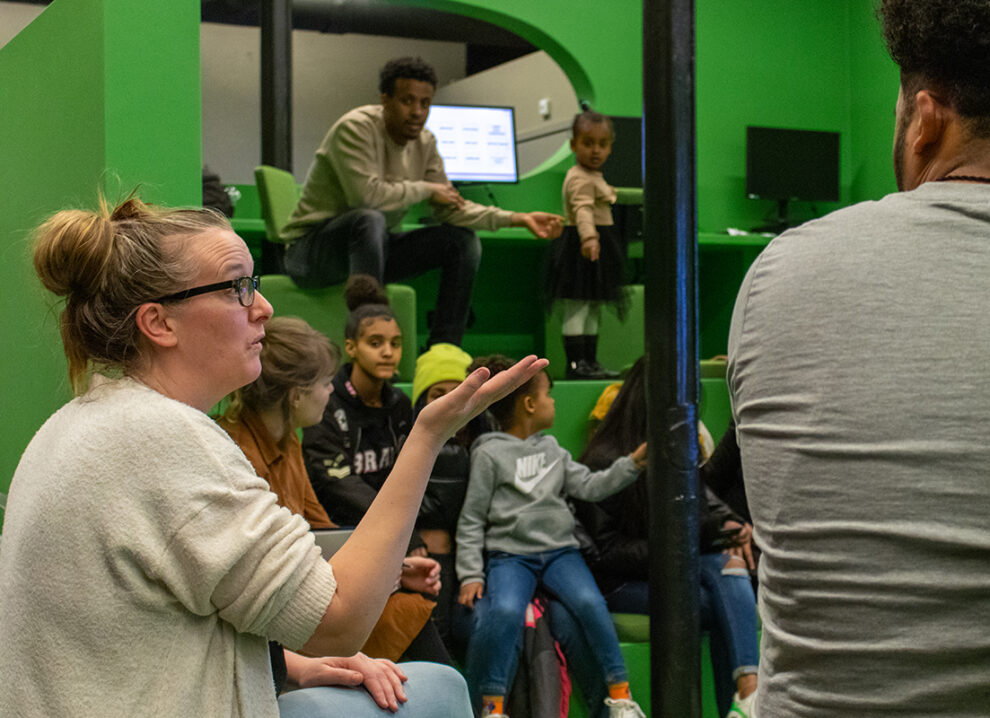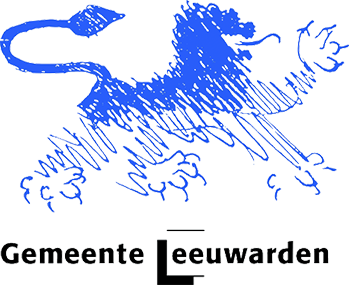Examples of social design in research


Social design is a collaborative approach to addressing societal challenges, working closely with stakeholders. Beyond delivering final results and interventions, it often provides researchers with valuable insights and essential data for their studies.
At 8D, we bring a decade of experience to the table with our unique social design methodology. Our approach is pragmatic, goal-oriented, and tailored to help researchers achieve tangible results through iterative and co-creative processes. In this blog, we highlight three inspiring examples from our portfolio, showcasing collaborations with innovative researchers who have made social design a central element of their research.
.

![]()
Background DigiJuf explores how speech technology and gaming can improve language skills in primary school students. In collaboration with the Centre for Language and Speech Technology at Radboud University Nijmegen, 8D developed a creative prototype that not only motivates children to read and speak but also generates valuable data for scientific research. This co-creative and iterative approach resulted in an award-winning academic publication, demonstrating the value of combining social design with research.
Approach For us, the DigiJuf-project began by engaging directly with the target audience. Through interviews with primary school students, we identified two major challenges: reading often feels isolating, and children have little influence over the storyline. These insights informed the creation of a game concept centered on collaboration and autonomy. In this game, children take turns speaking sentences to build a story together. The spoken sentences are instantly converted into text, with game mechanics designed to maintain their engagement.
Beyond designing the game, we provided extensive support to the research group. This included drafting a research protocol, conducting tests in primary schools across northern Netherlands, and documenting the resulting data. The functional prototype enabled the research team to examine both the potential and the limitations of speech technology, as well as how effectively children assess each other’s speaking and reading skills.
Results During testing, we observed that children improved their articulation after just a few sentences, motivated to see their contributions accurately displayed on the screen—and to earn points from their peers, of course! As designers, we assessed whether the game mechanics functioned as intended. At the same time, the prototyping phase yielded valuable test data, which formed the foundation of a scientific publication by the DigiJuf-research group. A key finding from the study was that children around the age of ten are remarkably effective at evaluating speaking and reading accuracy, performing on par with adults. This suggests that peer feedback from children could be a valuable feature in educational apps incorporating speech technology. The research group’s work earned the prestigious ‘Best Paper’ award at Trinity College Dublin.
What we learned The DigiJuf project highlights how social design can drive educational innovation while advancing research methodologies. Through this process, we recognized that our user testing methods – when documented to meet the standards of academic research – can serve as a valuable foundation for scholarly publications. This realization has shaped our practice, and we now proactively support researchers by tailoring our design and co-creation processes to align closely with the requirements of academic inquiry.


![]()
Background Shkorey aims to make information about sexual health and parenting accessible to newcomers in the Netherlands. The foundation’s core principle is to develop educational materials through co-creation with the target audience. 8D is grateful to have played a significant role in this initiative, working closely with the Eritrean community in Leeuwarden. This collaboration resulted in an educational game application featuring storylines on topics such as sexual health, pregnancy, and parenting. Building on Shkorey’s success, 8D and the Shkorey Foundation are now applying their expertise to a similar project with the Arabic-speaking community in Leeuwarden.
Approach Shkorey was initiated by Geertje Postma and builds on MyJorley, an earlier study on using serious gaming to address sexual and reproductive rights. Insights from this research, combined with dialogue with the Eritrean community, shaped Shkorey’s project design, funded by ZonMw under the program for unintended pregnancies and vulnerable (young) parenthood.
What makes Shkorey unique is its process-driven approach. Postma selected 8D for its flexible methodology, which actively involved the target group in designing gameplay and storylines. This co-creation process brought together Eritrean youth, healthcare providers, and cultural mediators. Over the project’s time span, sensitive topics became easier to discuss openly, marking a significant breakthrough for both the community and professionals.
Results Shkorey is a culturally sensitive game application addressing sexual health, pregnancy, and parenting. One feature, “Help in Your Area,” connects users to relevant local resources. Beyond these tangible outputs, the process created a safe space for discussing sensitive topics, providing valuable insights for researchers and designers working on similar challenges.
After the app was delivered, researchers from the Rutgers Knowledge Center on Sexuality used the intervention for qualitative research on the app’s usability and the topics it addresses. This study focused on two groups: Eritrean youth and healthcare providers in various regions of the Netherlands. Some research questions were integrated into the game, while feedback from professionals was collected through questionnaires. The research report was published in the spring of 2024.
“Many Eritrean newcomers found the app to be a useful and valuable resource, particularly because of the Tigrinya language option and the flexibility to explore information at their own pace. This allowed users to engage with important topics such as safe relationships, pregnancy, and parenting in an accessible way. Professionals using the app especially appreciated how Shkorey addresses these topics in a manner that aligns with the experiences and perspectives of the target audience.” (Source: Rutgers Knowledge Center on Sexuality)
What we learned Shkorey’s process is a powerful example of social design in action: bringing together diverse perspectives to arrive at impactful and sustainable solutions at an early stage. For us, this project proved that co-creation not only works, but also often delivers more than can be anticipated beforehand.
![]()

Background
Technology promises to ease the strain on mental healthcare, but can it align with values like compassion and human connection? The research program Compassionate Technology in Mental Healthcare, led by the University of Twente, seeks to answer this question. 8D is partnering with a multidisciplinary team of researchers, practitioners, and experts to design and analyze technology that embodies compassion.
Approach For Charlotte van Lotringen’s PhD project, supervised by Prof. Dr. Matthijs Noordzij, 8D is designing a card game as a research tool. This innovative intervention introduces smartwatch technology to professionals and clients in a compassionate and personalized manner. Additionally, the game fosters reflection on the advantages and limitations of the smartwatch. Our team started from a strong foundation: the researchers had already tested a lo-fi prototype with the target audience to define the research framework. Following this initial exploration, they decided to involve an experienced design agency—and we’re thrilled to have been chosen for the role!
Results The card game will be used as a research tool to explore compassionate technology theory in practice. A baseline measurement, conducted without the smartwatch and game, began in October 2024. The next phase will incorporate both tools, with insights from these trials informing the development of the final intervention.
Want to stay up to date on this project and exactly how the research is being handled? Feel free to contact johan@8d-games.nl for more information.
Social design helps researchers tackle complex societal challenges while enhancing stakeholder engagement. This approach often results in valuable outcomes, both academically and socially. If you’re considering incorporating social design into your research but are unsure where to begin, we’re here to assist. For instance, we can help you explore how to integrate an iterative approach into your project proposal.
You can join our Monthly Online Q&A or contact Johan directly via mail or Linkedin. . Additionally, our resource library contains a wealth of resources, including insights on how design can serve as a research tool and examples of researchers who have successfully implemented hebben toegepast.
